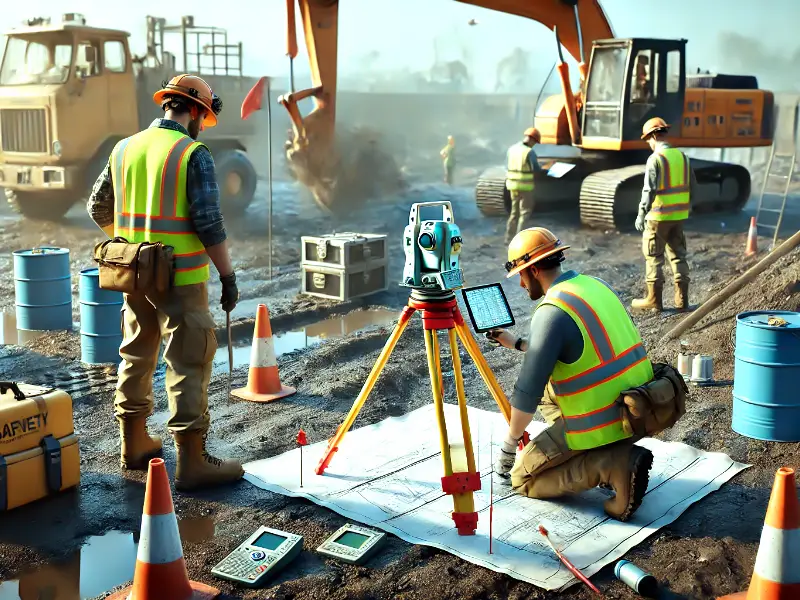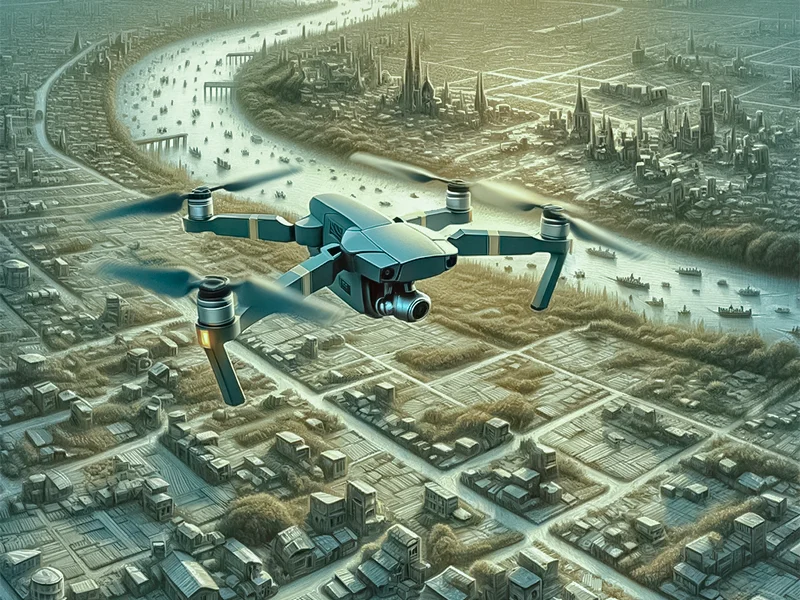
Field surveying technicians often operate in hazardous and demanding environments and therefore, safety is extremely important. The challenges that field surveying technicians face are numerous including uneven terrain, construction sites, and remote locations. Each of the environments mentioned above carries its unique set of safety concerns and hence, calls for proactive measured to prevent accidents and ensure the wellbeing of technicians.
In this article, our experts will list the best practices for field teams. So, stay with us!
Conducting a Pre-Survey Safety Inspection
Before starting a surveying task, first you need to check all of your tools and equipment. You need to ensure that different tools such as GPS units, total stations, and measuring tapes are acting properly. Likewise, check your tools for visible defects (if any) such as frayed cables or cracks. Furthermore, perform a test run to ensure that tools are fully ready to perform the task.
If you find any issue in the tools, report it immediately to concerned party. It will eliminate the risks of malfunctioning and prevent potential accidents. We recommend you carry spare parts and backup tools to address unexpected equipment failures.
You and your teams should adhere to standard operating procedures. Always wear proper safety gear such as glasses, gloves, and hard hats. When you wear the safety gear properly, it aids in protecting you from injuries. If you are working in areas where light or visibility is low, we recommend you wear high-visibility clothes.
Get Familiarized with Emergency Procedures and Evacuation Routes
Before performing a survey, always get yourself familiarized with emergency evacuation routes and procedures. Therefore, always pay a visit to site before initiating the work. Similarly, you need to identify the places where safety gear such as first aid kits and fire extinguishers are placed. If you can get yourself familiar with the nearest safe assembly points, it would be great in case of emergency.
Furthermore, we recommend you regularly take part in emergency drills. It will help you develop a deeper understanding of protocols for reporting incidents. If you are a team lead, it is your duty to ensure that every member of your team is aware of these protocols. Being prepared and informed helps reduce panic and ensures a swift and organized response during critical situations.
Always Plan for Unpredictable Weather Conditions

Before performing the survey, you need to ensure that you are well aware of the weather conditions so that there are no surprises. However, we understand that circumstances like these are beyond our control and that weather conditions can alter in blink of the eye. Therefore, always carry necessary equipment so that you can cater to weather conditions.
However, if you are receiving severe weather forecast with extreme heat or thunderstorms expected, we suggest you postpone and reschedule the survey.
Carry Necessary Supplies
Communication Systems
If you are going to perform surveys in remote areas, you should be equipped with state-of-the-art communication systems. Specifically, areas where cellular coverage is unreliable, communication systems are extremely valuable.
The communication gear will include the following
Two-Way Radios: These are essential for maintaining communication between team members, especially in large or remote areas.
Emergency Signals: Establish a set of emergency signals or codes that can be used to alert the team to immediate dangers, such as severe weather or a wildlife threat.
Check-In Protocols: Set regular check-in times with a designated safety officer or base location to ensure that the team is accounted for throughout the day.
Conclusion
Surveying is a difficult task as it often requires working in demanding and challenging conditions. Therefore, it becomes imperative that you take proactive measures and adhere to SOPs such as getting proper training, the use of PPE, effective communication, and constant environmental awareness.
If you are looking for Land and Building Surveyor company based in UK that provides top-notch surveying results at market-competitive prices, look no further. Furthermore, we regularly hold training sessions for our staff as their safety is something that it non-negotiable. To get your free survey and instant survey quote, click click here.




